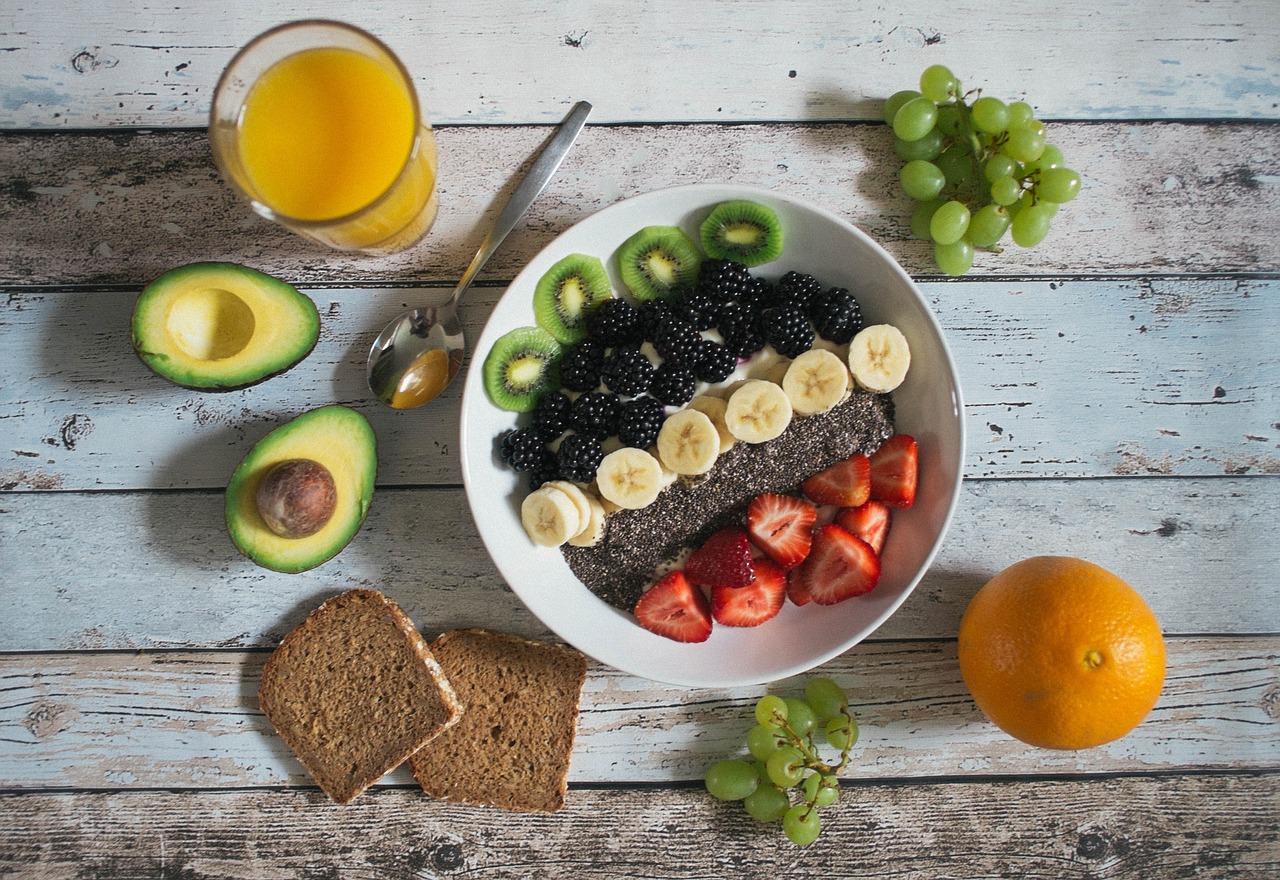We should all be eating plant-based breakfasts in a net zero world. But what is a plant-based breakfast like? In some cases, it will be simple substitutions to what you already have, because only dairy products need to be substituted out. In other cases, it will mean being more creative with ingredients. Making your breakfasts more plant-based is also an opportunity to build a healthier diet. Having a plant-based breakfast will increase the amount of fruit and vegetables you eat and reduce the number of calories you consume.
Porridge with plant milk
Porridge is one of the healthiest breakfasts to have. A way of making this breakfast plant-based is by using plant milk instead of cow’s milk to make porridge. A bowl of porridge with cows’ milk is 800g of CO2e and a bowl of porridge with soya milk is 450g of CO2e. To boost its nutritional value, dieticians suggest adding fruit and cinnamon on top. Berries are seasonal in the UK between May and September, whilst fruit such as bananas, apples and oranges are seasonal all year round.
Toast
Toast is a low emissions breakfast, regardless of what type of bread it is. Using a vegetable spread instead of butter made from cow’s milk will make toast entirely plant based. Making this change reduces the carbon emissions of toast by over 40%. Toppings should also be plant-based too, such as jam, marmite or avocado.
Scrambled tofu
Scrambled tofu is a good substitute for scrambled eggs. Eggs are a high emissions food because egg-laying chickens eat wheat and soy. Carbon emissions from wheat come from the fertiliser used to grow wheat. Soy production is one of the leading causes of deforestation, which contribute hugely to climate change. Scrambled eggs usually have dairy products in it, such cream and butter. A good substitute for scrambled egg is scrambled tofu. Seasonings such as onion and garlic powder, turmeric and sweet paprika are often added to scrambled tofu
Cornflakes with plant milk
Cornflakes is one of the most popular choices for breakfast. A typical bowl of cereal which includes 30g of cereal and 200g of cows’ milk is 519g CO2e. This reduces to 239g CO2e if you substitute cows’ milk for plant milk. It doesn’t matter which plant milk you use, it will reduce emissions by over 50%.

Leave a Reply